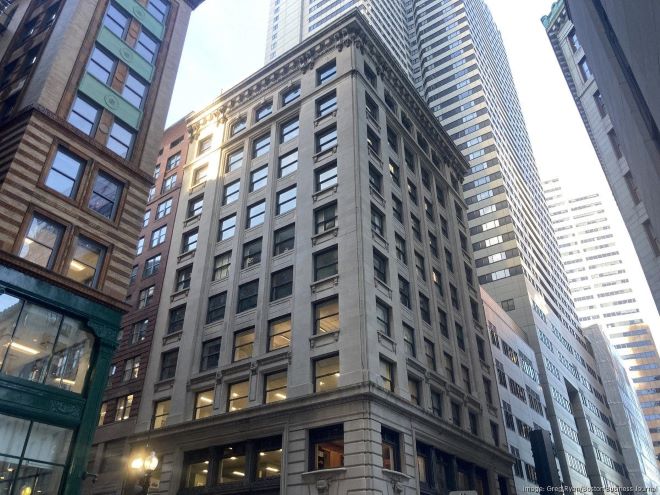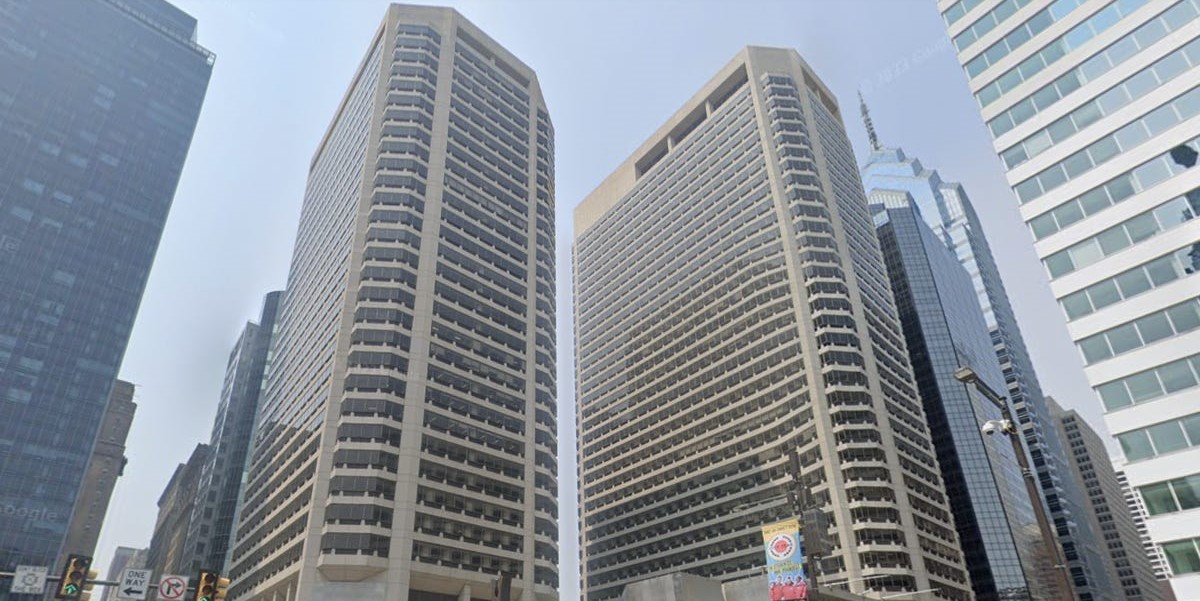While Philadelphia has been a leader in creating a downtown that mixes residential and commercial uses, it’s no secret that several Center City office buildings are languishing and heading to foreclosure. Last month the Inquirer published a piece listing the city’s three emptiest buildings, including the historic Wanamaker building’s 1 million square feet. Now valued at $52 million — 72 percent less than its value in 2018 — the building is in receivership. I can’t help but think this is a bargain — and that the City should buy it to advance one of its priorities, such as affordable housing. It wouldn’t be the first time a local government saw the opportunity in discounted office real estate.
After years of concern over the fate of office buildings, there’s been significant investment momentum in distressed office real estate since the start of the year, and experienced investors are now preparing to snap up buildings. Several $1 billion funds have been launched in 2024 so far by veteran risk-takers.
Smart investors see what is happening in American downtowns four years out from the onset of the pandemic: The business fundamentals of major cities are relatively stable and could even dramatically improve. Why not buy?
As Commercial Observer put it:
By all accounts, the dust over the beleaguered asset class has finally settled, the blood has largely been drained out of the worst buildings, others have been surrendered, and the top voices in the industry are shouting that it’s safe to jump into the water.
Now that there’s a business case to be made buying discounted real estate, it’s a good moment to ask: Are local governments playing their cards right?
Starting to feel a little 2008

Cities have been eager to find ways to make purchasing and converting office buildings attractive. Boston is offering PILOTS (payments in lieu of taxes) for office conversions. San Francisco is voting this March on eliminating the transfer tax on office building purchases meant for residential conversion. Washington, D.C. is readying a 20-year tax abatement on office-to-residential conversion. And the federal government has also provided guidance on all the resources it offers, including low-interest loans and grants, to support office conversions.
But it’s starting to feel a bit like 2008 all over again. Developers are capturing all the upside of the distress while cities seem desperate to pave the way for investor success with little thought about how they, too, could benefit from a market rebound.
After the Great Financial Crisis, government investment in distressed housing was “too little, too late, too timid,” according to oft-cited analysis from Georgia State’s Dan Immergluck, which categorizes the response as “moving too slowly in some cases and being too captive to the policy preferences of the financial services industry.” Cities could have bought thousands more foreclosed properties in 2008, reducing the downsides of foreclosed properties on neighborhoods and capturing a set of housing they could preserve as affordable. Instead they stood on the sidelines as those properties were bought up by savvy investors, then flipped or rented out at higher than previous rates.
As commercial properties fall into foreclosure in 2024, cities could take steps to better shape the city they want in the future by actually investing in those properties themselves.
Developers are capturing all the upside of the distress while cities seem desperate to pave the way for investor success with little thought about how they, too, could benefit from a market rebound.
At the end of last year, Harris County, which encompasses Houston, Texas, bought a 20-story building for $26 million to consolidate administrative offices. Indeed, many cities have had to spread out their administrative offices across several buildings because of the challenges of finding adequate space in one building in the before times. Now, several cities, including Wilmington, North Carolina and Des Moines, Iowa are finding that it makes much more sense to move all their employees into one building and renovate it for that purpose.
The City of Fremont, California, also bought an office building to renovate it as a new City Hall. Cities still have thousands of employees, and in many cases — like in Philadelphia — are pushing for employees to return to work five days a week as part of their strategy for downtown revival. Local governments, in fact, make the perfect tenants for office buildings and are primed to take advantage of discounted prices.
But other cities are thinking of converting office buildings to other uses. Maricopa County, which encompasses Phoenix, Arizona, bought an office building for $11.3 million and is turning it into a regional public health facility. Through its economic development arm, Invest Atlanta, the City of Atlanta bought 2 Peachtree, a sweet 1960s Emery & Roth skyscraper from the state for $39 million, and recently announced the developer team that will convert the building into a mix of market rate and affordable housing.
According to Atlanta Civic Circle:
Two Peachtree Partners plans to convert floors six through 41 of the 1960s tower into 625 residences. Of those, 338 will rent at market rates and the other 287 will be priced as affordable for households earning up to 80 percent of the area median income (AMI) — about $77,000 for a family of four
For any city struggling to build affordable housing, buying office buildings could offer cities a way to control what gets built, and how. Indeed, the smartest move might not be to have the city redevelop the property at all, but instead to resell it with a set of incentives and strategic goals in mind. Philadelphia could spot zone office buildings to test out innovative housing ideas, like co-living, SROs, or senior housing or to create multi-purpose buildings that mix office and housing together. Buyers who are guaranteed the appropriate zoning and know the city is working to support the project are more likely to pay a premium than those who know they have to factor risk and permit delays into the price.
The key here is to not waste this crisis and to instead expedite Philadelphia’s strategies through the purchase of foreclosed office buildings, whether they are to consolidate employee offices or add affordable housing downtown.
The recent investment activity in office buildings is a perfect example of the market doing its thing — when the price is right, buyers will snatch these buildings up. Hopefully Philadelphia will recognize the opportunity.
Diana Lind is a writer and urban policy specialist. This article was also published as part of her Substack newsletter, The New Urban Order. Sign up for the newsletter here.
![]() READ MORE ON THE NEW URBAN ORDER
READ MORE ON THE NEW URBAN ORDER



